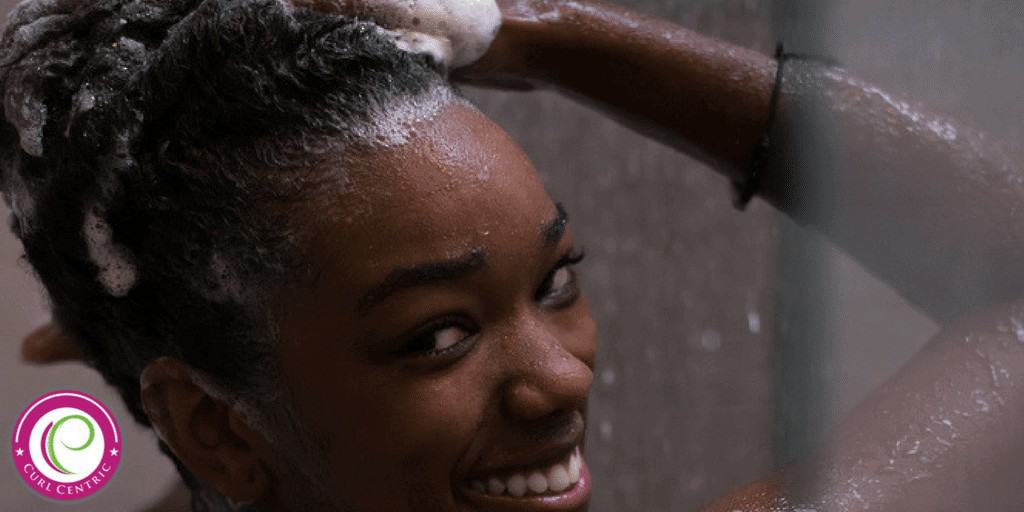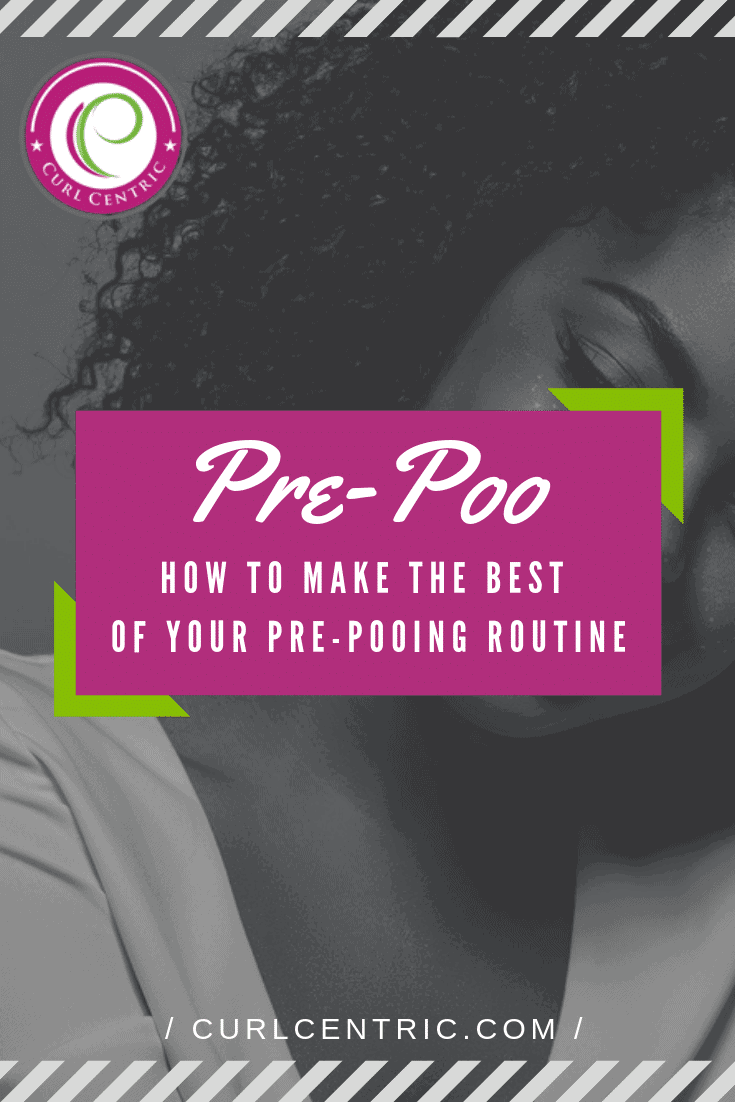
Although the term pre-poo is simply an abbreviation of the phrase pre-shampoo, do you know what it means when ladies mention pre-pooing their hair?
Should you also pre-poo your hair?
In this article, we'll discuss the meaning of pre-pooing and the art of using a pre-poo hair treatment in a simple, easy-to-understand manner that's supported by scientific evidence.
Table of Contents
The Effects of Using Natural Oils and Conditioners as a Pre-pooing Treatment

We've seen our fair share of creative concoctions that are designed to prepare the hair for heat styling, extensions, dreadlocks, and several other techniques.
Although, one popular treatment for natural hair that is often misunderstood is the prewash, sometimes referred to as a pre-poo.
For the sake of simplification, we're going to focus on two primary groups that are often related to pre-poo treatments: oils and conditioners.
- In the first group, we'll discuss oil that is applied to the hair before the hair has been washed or wet.
- In the second group, we'll discuss hair conditioners and conditioner-oil mixes that are applied to the hair before the hair has been washed or wet.
So, what's the best pre-poo routine for natural hair?
Is it better to use a conditioner, an oil, or perhaps a mix of the two? Let's take a look at each of these options individually to determine the best pre-poo routine for natural hair.
The Benefits of Oiling Your Hair Before Shampooing

In the past, we've discussed hair damage as a result of your hair shaft expanding and contracting when the hair is wet and then dries. The result of this damage is often referred to as hygral fatigue.
In an effort to mitigate hygral fatigue, some women choose to pre-poo their hair with oils, such as coconut oil, castor oil, and olive oil.
Coconut oil and potentially other oils can penetrate the cuticle and significantly reduce cuticular damage, keeping the hair from expanding excessively when wet according to the Journal of Cosmetic Science (source).
This reduction in damage is attributed to the hydrophobicity of the oil, which is thought to reduce the expansion of the hair cuticle.
As you shampoo your hair, the shampoo lifts oil from the surface of your hair. For many people, they are left with their hair feeling as if it has been stripped.

Pre-poo treatments create oily hair or a greasy hair feeling. In most cases, a single shampoo application will not remove all of the oil. As a result, the hair will not feel stripped. It's important to note that you can use pre-poo for transitioning hair as well as natural hair.
When you pretreat or pre-poo natural hair with coconut oil, it is less likely to break after it has been washed. There are some common hair oils that may not prevent the problem with hygral fatigue.
Reading natural hair forums, we've noticed that some naturals are pre-pooing with argan oil, castor oil, mineral oil, and shea butter.
Some oils are unlikely to protect against hygral fatigue, so it's important that you perform due diligence about the specific oil that you're planning to use.
Plus, it may take hours for some oils to penetrate into the hair. In addition, individuals with naturally oily or greasy hair may not want to apply additional oil to their hair.
The Benefits of Conditioners as a Pre-Poo Treatment

Hair conditioners are often more than 50% water. Consequently, most people will not experience as much protection against hygral fatigue reduction when they pre-poo with an oil and conditioner mix compared to using only oil.
From our experience and research, we recommend pre-pooing with an oil. We often asked about the best pre-poo oil, but that's really a personal decision. Our favorite oil to use is coconut oil, but we can't definitively state that coconut oil is the best oil for pre-pooing natural hair.
It's also important to note that while using oil on its own tends to work better from our research, more research needs to be done.

If you're planning to use a conditioner to pre-poo, consider that build-up can occur because of the positive ("conditioner") and negative ("shampoo") charges within the hair products.
When shampoo is used on hair with conditioner, there may be certain combinations that could lead to product build-up.
This build-up doesn't always occur, however, and some shampoo and conditioner combinations work well together. Nevertheless, for precautionary reasons, we recommend thoroughly rinsing your hair after conditioning and prior to shampooing.
Unfortunately, the only way to truly determine if a specific shampoo and conditioner work well together for your hair is through trial and error. It is always best to attempt to mitigate the problem and rinse the hair during the process.

What Should Be Used for Pre-Poo?
While we prefer to use coconut oil for pre-poo treatments, you can use your favorite hair oil if you'll willing to do a little trial and error. Just remember to consider the needs of your hair and then react accordingly.
Creating Your Own Pre-Poo Recipes & Overnight Routines

Instead of buying a commercial off-the-shelf pre-poo, some ladies create their own pre-poo recipes. Other women have very detailed processes that include overnight pre-poo routines.
After some time, you will understand more about what your hair needs. Our initial recommendation doesn't vary by hair type, so we suggest starting with coconut oil regardless if your pre-pooing 3b or 4c hair types.

- What Is Low Poo for Curly Girls?
- How to Moisturize Low Porosity 4c Hair
- Why Does My Thick Hair Dry So Fast?
- How To Use Baobab Oil for Hair Growth
We've also had some ladies ask if pre-pooing promotes hair growth. We haven't seen any evidence that suggests that hair growth can be stimulated by a pre-poo routine. Although, we will update this article if we find evidence that suggests that pre-pooing encourages hair growth.





